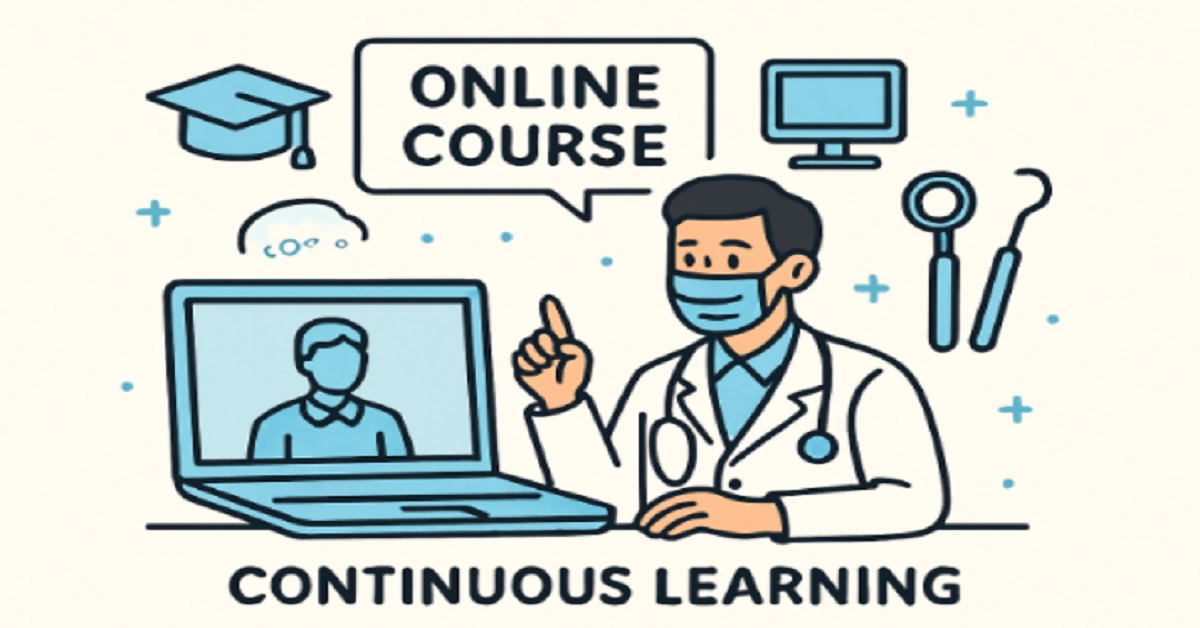The Value Of Lifelong Learning In Dentistry
The dental profession is evolving at a remarkable pace, driven by rapid technological advancements and ongoing research that consistently update best practices and patient care standards. To sustain excellence and deliver optimal care, dental practitioners are increasingly embracing lifelong education as an integral part of their careers. This ongoing process equips both clinical and administrative team members with up-to-date skills and knowledge, ensuring they can adapt quickly to changing protocols and advancements. Exploring dental CE courses offered by reputable organizations provides dental professionals with structured opportunities to carefully select topics relevant to their practice and patient population. Engaging in these courses not only helps fulfill regulatory requirements but also fosters the growth of innovative approaches to dental care.
Types Of Professional Development Opportunities
Today’s dental professionals can choose from a broad array of continuing education options tailored to any schedule or learning style. On-demand webinars provide flexible access to industry experts and emerging evidence. Live workshops and hands-on training sessions allow participants to practice new procedures and techniques in real-world settings. Online platforms bring convenience and variety, while traditional conferences and seminars foster direct interaction and experiential learning. Networking at live events offers unique benefits, including exposure to diverse viewpoints and peer support. These venues allow dental practitioners to discuss common challenges, share innovative solutions, and establish mentoring relationships. This collective engagement accelerates individual growth and improves team synergy within dental practices.
Recent Trends Shaping Dental Training
The integration of advanced digital tools continues to revolutionize dental education. Virtual reality (VR) and simulation technologies, as highlighted in recent updates from the American Dental Association, provide realistic practice scenarios and immediate feedback, bridging the critical gap between classroom theory and hands-on clinical practice. These digital solutions offer learners opportunities to develop and refine complex procedures in a risk-free environment.
Additionally, adaptive learning technologies and personalized e-learning modules allow practitioners to hone specific skills, targeting areas that most impact their patient demographics. This tailored approach increases retention of new information and encourages a proactive mindset toward self-directed professional growth.
Evidence-Based Dentistry And Clinical Success
Delivering safe, effective dental care hinges on a solid foundation in evidence-based practices. The field of dentistry is ever-changing, with new guidelines, treatment protocols, and research constantly emerging. Accessing peer-reviewed journals, attending clinical update seminars, and maintaining active participation in continuing education ensure that dental teams remain aligned with the highest standards. Incorporating the latest research into practice not only enhances clinical outcomes but also builds patient trust. Informed patients are more likely to seek care from dental professionals who demonstrate a clear commitment to ongoing education and evidence-based care.
Building Collaborative Dental Teams
The expertise within a dental office extends beyond the dentist to include hygienists, assistants, administrative staff, and laboratory partners—all working toward a shared goal. Coordinated team training in areas such as infection control, patient management, technology adoption, and communication drives the development of a collaborative environment. Joint educational sessions help staff identify shared objectives and strengthen the collective skill set, resulting in improved patient experiences and clinic efficiency. Team-based development also promotes staff retention and job satisfaction by nurturing a sense of purpose and belonging. When everyone is invested in continuous learning, dental practices are better positioned to respond to industry changes and regulatory requirements.
Staying Ahead Of Regulatory Requirements
Dental professionals must keep pace not just with clinical innovation, but also with evolving state and national regulations. More states are requiring specific continuing education credits for license renewal, with frequent updates to mandated areas such as opioid stewardship, infection prevention, and radiographic safety. Leveraging resources from leading dental associations and accrediting bodies simplifies the process of tracking and fulfilling these requirements, reducing the risk of compliance gaps.
Networking And Career Advancement Strategies
Strategic networking expands access to mentors, collaborative projects, and emerging career paths. Whether attending local society meetings or national industry conventions, engaging with a broad peer group promotes fresh perspectives and fosters the exchange of innovative ideas. Such involvement facilitates skill development beyond clinical expertise, encompassing leadership, business management, and patient engagement. Building a supportive professional network also cultivates resilience and adaptability, key traits for succeeding in a dynamic healthcare environment.
Empowering Dental Teams For The Future
The commitment to continuous professional development enables dental teams to remain nimble and innovative as dentistry advances. Dental professionals secure their place at the forefront of their industry by prioritizing education—whether through dental CE courses, team workshops, or professional networking. Unified by shared learning and a dedication to success, dental teams ensure better clinical results and higher patient satisfaction, shaping a brighter future for oral healthcare worldwide.
Conclusion
In an era of rapid advancements and evolving patient expectations, lifelong learning is more than a professional obligation for dental teams—it is the key to sustained excellence. By embracing diverse educational opportunities, leveraging emerging technologies, and staying grounded in evidence-based practices, dental professionals position themselves to deliver superior care while meeting regulatory demands. Collaborative training and strategic networking strengthen clinical outcomes, foster innovation, and enhance job satisfaction. Ultimately, a commitment to continuous growth ensures that dental practitioners keep pace with the industry’s transformation and actively shape its future, building trust, improving patient experiences, and advancing oral health globally.
